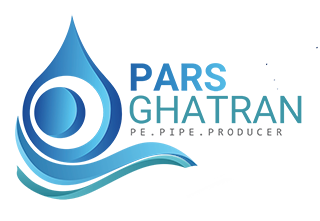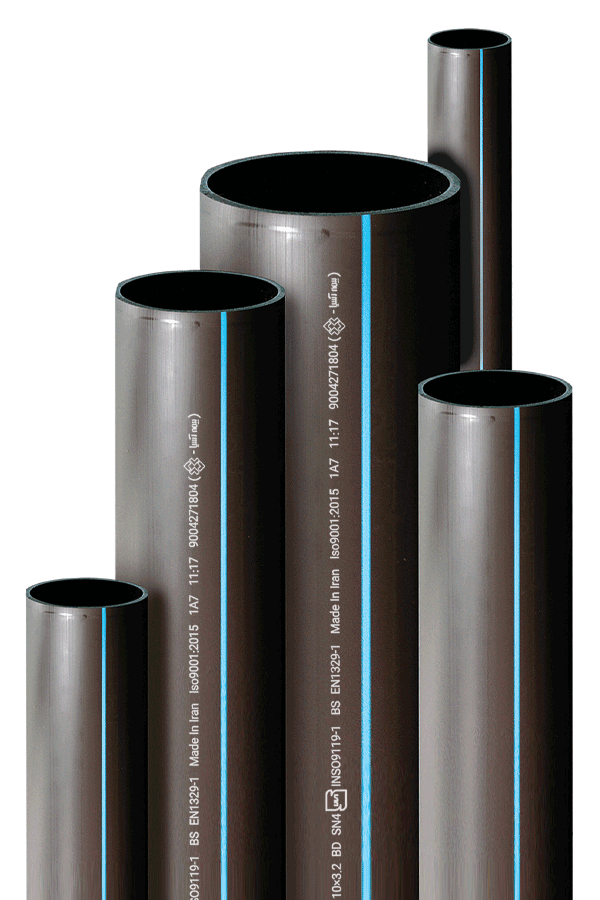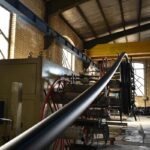The best type of pipe
- Article
- The best type of pipe
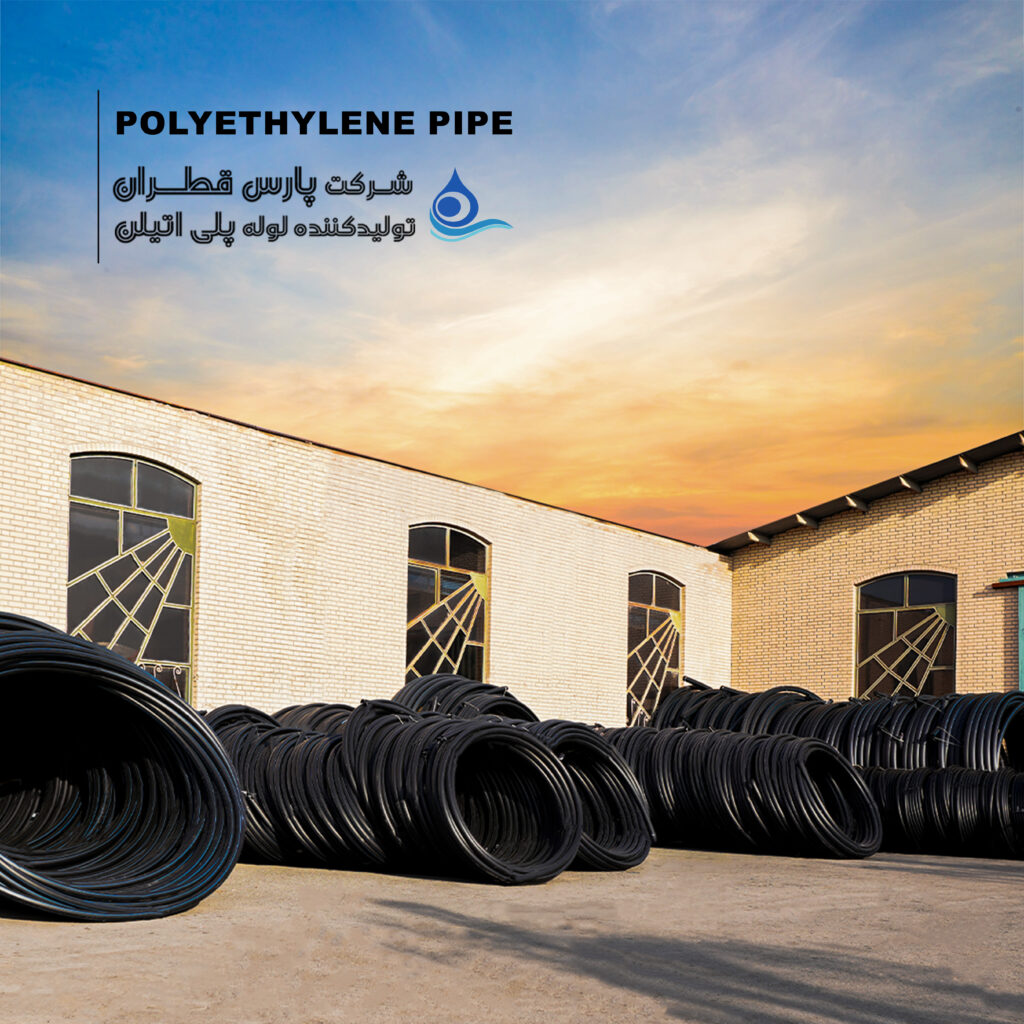
- July 4, 2023
- 9:18 am
The best type of pipe
Different types of pipes used for agricultural purposes and the characteristics of each
In the following article, we will first introduce all types of pipes that might be used in agricultural settings and then introduce the best type of pipe for agricultural applications. The most important characteristic of agricultural pipes is their high quality and strength. Pipes used for agricultural purposes are as follows:
- Cast iron pipes
- Galvanized pipes
- Polymer pipes
Cast iron pipes
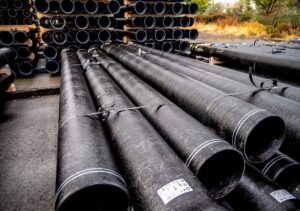 Cast iron pipe
Cast iron pipe
Before introducing the best type of pipe let us first introduce cast iron pipes. These pipes are manufactured in two types: hub & spigot and hubless. The first type is produced in two forms: single hub and double hub and oakum or lead is used to seal them. The second type is more impact resistant compared to the first type. This has made the hubless pipes easier to install and more resistant against expansion pressure.
Galvanized pipes
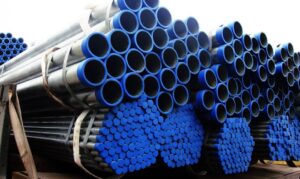 Galvanized pipe
Galvanized pipe
The second type of irrigation pipe is galvanized pipe. These pipes are known as white iron and are fairly light and shiny. They are mostly used in linear and center-pivot irrigation systems.
Different types of galvanized pipes:
- Cold-dip galvanized pipe: this type of pipe is produced by immersing the galvanized pipe in a special aqueous solution of zinc chloride using electrolysis.
- Hot-dip galvanized pipe: this type of pipe is produced by dipping it in a zinc bath at a standard temperature.
- Galvanized iron pipe: these pipes come in light and medium forms. In addition, these types of pipes are only produced in dark grey color. There are special seams in the structure of these pipes which are welded together during production. That is why these pipes are sometimes called welded pipes.
- Galvanized steel pipes: these types of pipes are often used in sewer and HVAC systems. Since these pipes are made from soft steel, they get dipped into a zinc bath to make them more resistant.
Polymer pipes
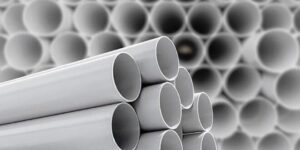 Polymer pipes
Polymer pipes
The third type of pipes we would like to introduce before introducing the best irrigation pipe is polymer pipe. These pipes have a wide range of applications and an unprecedented resistance against tuberculation, microbes, etc. In addition, they are very easy to install and therefore low cost.
As mentioned earlier, these pipes are widely used in irrigation systems. In addition, they are water efficient due to their unique structure. One of the widely used polymer pipes is polyethylene pipe which is considered the best type of pipe for agricultural purposes. Next, we will explain these pipes in detail.
Polyethylene pipe as the best pipe for agricultural purposes
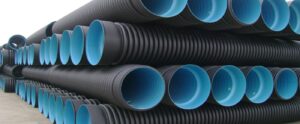 Polyethylene pipe
Polyethylene pipe
Polyethylene pipes are known as the best pipes for agricultural purposes. it is because these pipes have some characteristics and advantages other pipes cannot have simultaneously. The fusion methods used to connect theses pipes makes them leak-free and therefore water efficient.
In addition, polyethylene pipes reflect sunlight and are UV resistant. They have a favorable quality due to containing resin material in their structure. These pipes are highly resistant against the heavy weight of agricultural machinery and equipment.
Furthermore, polyethylene pipes never get clogged and have a high resistance and strength against storm, strong winds and rain. They have high elasticity which makes them easy to install.
Another important point about polyethylene pipes is that they can be used to deliver pesticides and fertilizers in addition to delivering water. Besides, they are resistant against high temperatures and function well during high temperatures.
Water inflow and outflow can also be accurately controlled using these pipes. Polyethylene pipes are used in irrigation systems such as drip, center-pivot, sprinkler, linear, pressurized and even wheel move irrigation systems.
Advantages of polyethylene pipes
Polyethylene pipes have so many advantages that farmers prefer to use them more in agricultural projects. Below are some of the advantages of the best type of pipe for agricultural purposes:
- Light weight: unlike common belief, the weight of a pipe does not necessarily have a direct relationship with its resistance or strength. Polyethylene pipes have a very low weight, but are highly resistant and strong.
- They have lower maintenance, shipping, and installation costs compared to other types of pipes, especially galvanized pipes.
- Polyethylene pipes are non-toxic which is another advantage of these pipes since they pose no risk for pastures and plants in agricultural applications.
- They are resistant against corrosion, UV lights, and all chemical substances and solutions. The UV resistance of these pipes is an important advantage in agricultural applications. Moreover, since pipes are constantly exposed to acids or toxins inside some fertilizers, water, or even soil, they need to be highly resistant against corrosion.
- These pipes are also manufactured in a variety of sizes and dimensions with a high flexibility. This has made them suitable for various applications and different pipes connections.
- The best type of irrigation pipe has a long service life. Polyethylene pipes are highly resistant against corrosion and other conditions and have an estimated service life of 100 years.
Properties of polyethylene pipes
One of the most important applications of polyethylene pipe is for agricultural purposes. This type of pipe is highly resistant against chemical substances and corrosion. Moreover, it is very light weight which makes it cost-effective.
On the other hand, these pipes have a high durability and a long service life which reduces shipping and installation costs. It is interesting to know that these pipes go through different tests in the factory to measure their resistance. The pipe quality is assessed during these tests.
One of the major properties of polyethylene pipes as the best irrigation pipes is their strength and toughness in cases of soil movement. This protects them against displacements.
Another characteristic of the pipes is their bendability which makes them cost-effectively. These pipes can be bent at temperatures as high as 20 degrees with a bent radius 25 times that of any other pipe. These pipes are also resistant against corrosion and rusting.
This is considered an advantage compared to cast iron and galvanized pipes. In addition to that, these pipes have high strength against heavy flows, are flexible and impact resistant.
